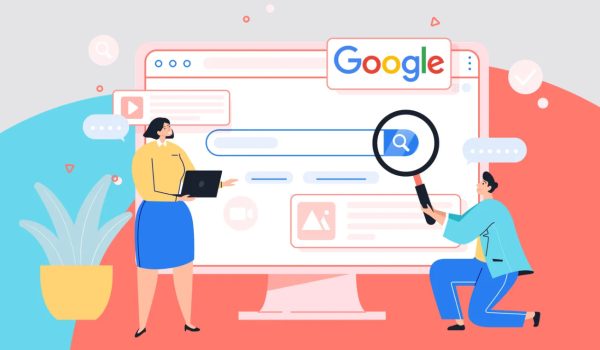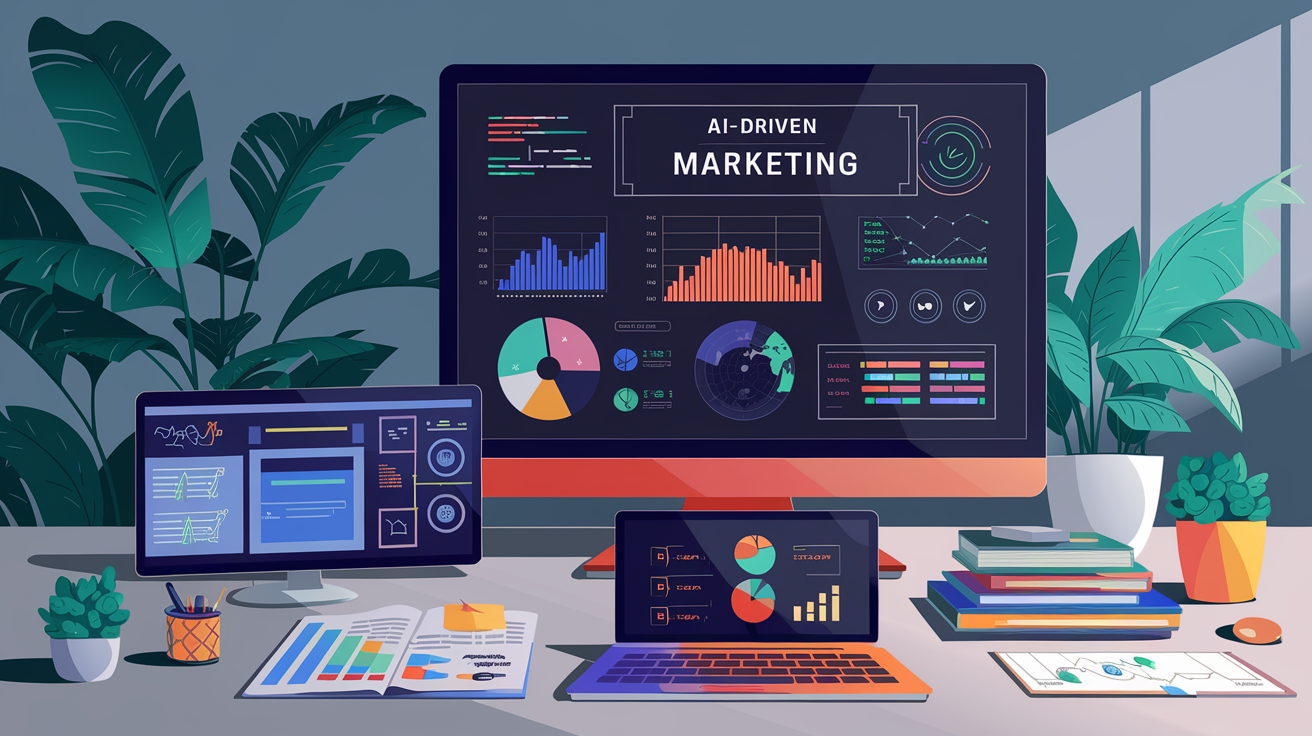
Artificial Intelligence (AI) marketing has emerged as a game-changing force in the digital landscape, revolutionizing how businesses connect with their audiences. At its core, AI marketing involves the use of artificial intelligence and machine learning technologies to enhance marketing strategies through data analysis, workflow automation, and personalized content generation.
The significance of AI in modern marketing campaigns cannot be overstated. It empowers marketers to make data-driven decisions, optimize customer experiences, and deliver highly targeted messages at scale. Interestingly, many marketers are already using AI-powered tools daily, often without realizing it, highlighting the pervasive nature of this technology in the industry.
AI is transforming marketing strategies and operations by focusing on task-specific applications that improve with increased data exposure. From predictive analytics and chatbots to content creation and ad optimization, AI is reshaping every aspect of the marketing funnel. This transformation is not just about efficiency; it’s about effectiveness. A study by McKinsey suggests that AI in marketing has the potential for substantial financial impact, underscoring its importance in driving business growth and competitive advantage
Key Benefits of AI in Marketing
One of the most significant advantages is the power of advanced data analytics. AI-driven tools can process vast amounts of data, uncovering trends and insights that would be impossible for humans to detect manually. This capability leads to improved campaign performance, allowing marketers to make data-driven decisions and optimize their strategies in real-time.
Another key benefit is the increased efficiency achieved through task automation. AI can handle repetitive and time-consuming tasks, such as data entry, report generation, and basic customer inquiries. This automation frees up marketers to focus on more strategic initiatives, fostering creativity and innovation in their campaigns.
Furthermore, AI excels in adaptability, particularly in tailoring content for diverse demographics. Through sophisticated algorithms and machine learning, AI can analyze consumer behavior and preferences, enabling marketers to create highly personalized content that resonates with specific audience segments. This level of customization extends across various cultural perspectives, ensuring that marketing messages are both relevant and culturally sensitive.
By leveraging these benefits, marketers can achieve higher ROI, enhanced customer engagement, and more effective targeting. As AI continues to evolve, its role in shaping successful marketing strategies will only grow more significant.
Applications of AI in Marketing
Building on the benefits discussed earlier, AI’s applications in marketing are diverse and impactful. One of the most notable is content generation across various formats and mediums. AI can identify potential viral content, recommend topics, and automate aspects of publication, as demonstrated by Buzzfeed’s operations.
Customer support has also been revolutionized through AI-powered chatbots and virtual assistants, providing instant, 24/7 assistance to consumers. In advertising, predictive analytics enables more effective ad campaign optimization, allowing marketers to fine-tune their strategies based on data-driven insights.
Social media marketing benefits significantly from AI, with sentiment analysis tools offering real-time insights into consumer opinions and trends. Additionally, AI enhances SEO optimization and email marketing strategies. For instance, tools like Phrasee and Seventh Sense use AI to craft effective subject lines and optimize email send times, significantly improving engagement rates.
These applications demonstrate how AI is not just augmenting but transforming core marketing functions, enabling more personalized, efficient, and data-driven campaigns across multiple channels.
Comparing Human vs. AI Efficiency in Marketing
To illustrate the comparison between human and AI efficiency in marketing, consider the following table:
| Task | Human Efficiency | AI Efficiency |
|---|---|---|
| Content Creation | Variable, dependent on individual skill | High volume, consistent quality |
| Data Analysis | Time-consuming, potential for human error | Rapid, accurate processing of large datasets |
| Personalization | Limited by time and resources | Scalable, real-time personalization |
| Creativity and Innovation | High, with unique insights and ideas | Requires accurate prompting and training to meet the brand expectations. |
While AI excels in tasks requiring data processing and scalability, it’s important to note that human creativity remains irreplaceable. The key lies in striking a balance between AI efficiency and human ingenuity. As AI takes over routine tasks, marketers can focus on strategic thinking and creative problem-solving.
However, there are potential risks to consider. An overreliance on AI could lead to content overload and homogenization, as AI systems often draw from existing data patterns. To mitigate these risks, it’s crucial for companies to develop both technical (AI-driven) and creative (human-driven) capabilities.
In conclusion, although AI significantly enhances marketing efficiency, maintaining a creative edge is paramount. The most successful marketing strategies will likely emerge from a synergy between AI’s analytical power and human creativity, ensuring campaigns remain both data-driven and innovatively engaging.
AI Copilot: Redefining the Experience for Marketers
Since we’ve already explored the efficiency of AI in marketing, it’s time to introduce a comprehensive solution that brings together all these capabilities: the AI Marketing Copilot by CODESM Marketing. Designed for enterprise teams to “market smarter, not harder,” this innovative tool functions as a personalized marketing assistant, knowledgeable about brand-specific objectives and modern marketing strategies.
The AI Marketing Copilot offers a suite of features that cover the entire spectrum of marketing needs. From content creation and analytics to branding and error checking, it provides a holistic approach to AI-driven marketing. What sets it apart is its ability to tailor its output to align with your specific brand, audience, and business goals, ensuring that every campaign is not just efficient, but also on-brand and effective.
AI Stock Photography
Utilizes best-in-class, multi-modal AI models that work with text, image, and voice.
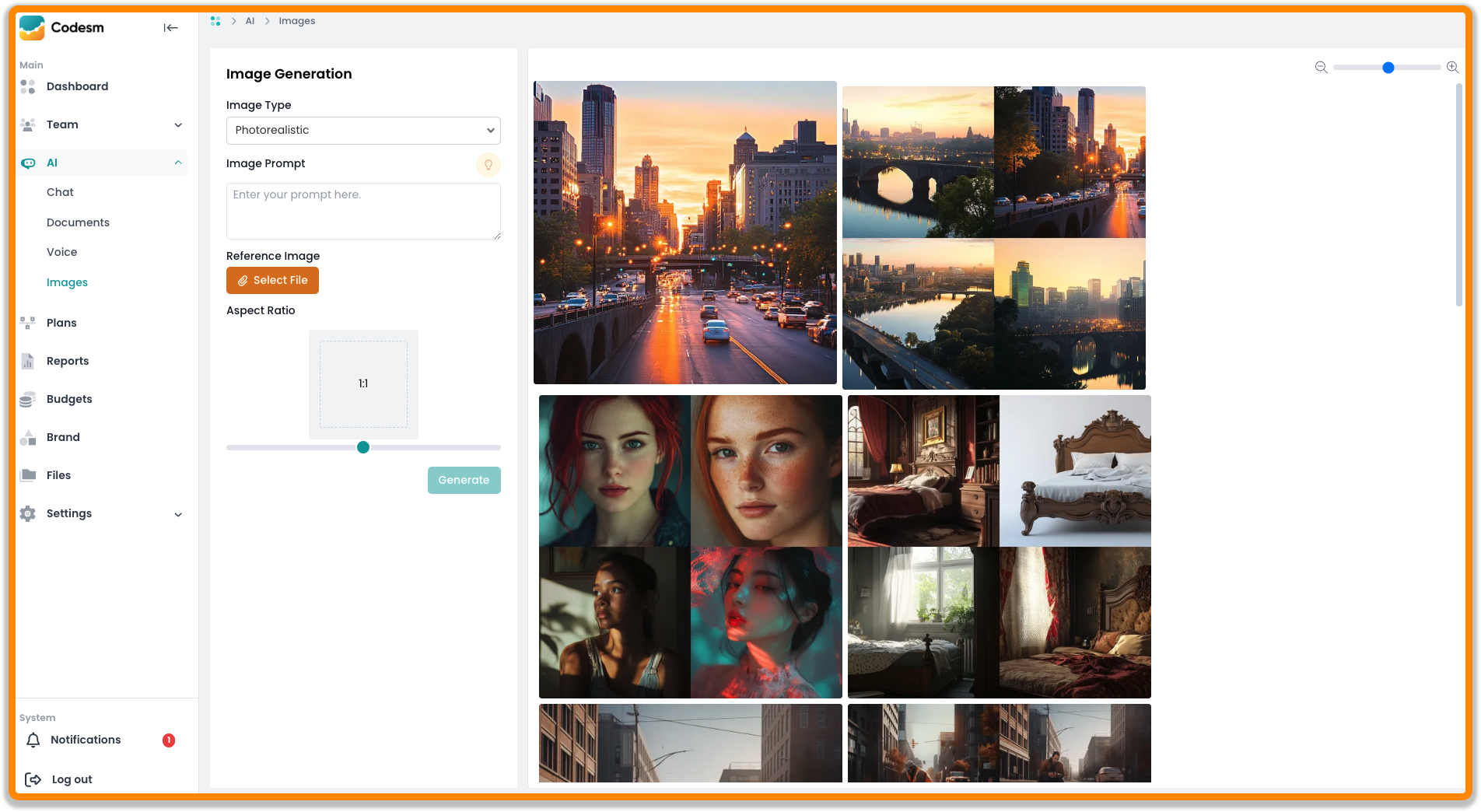
Custom AI Chatbot
Offers tools like Chat for generating copy and completing tasks.

AI Video Tools
Includes Video for transcription and storyboard creation.
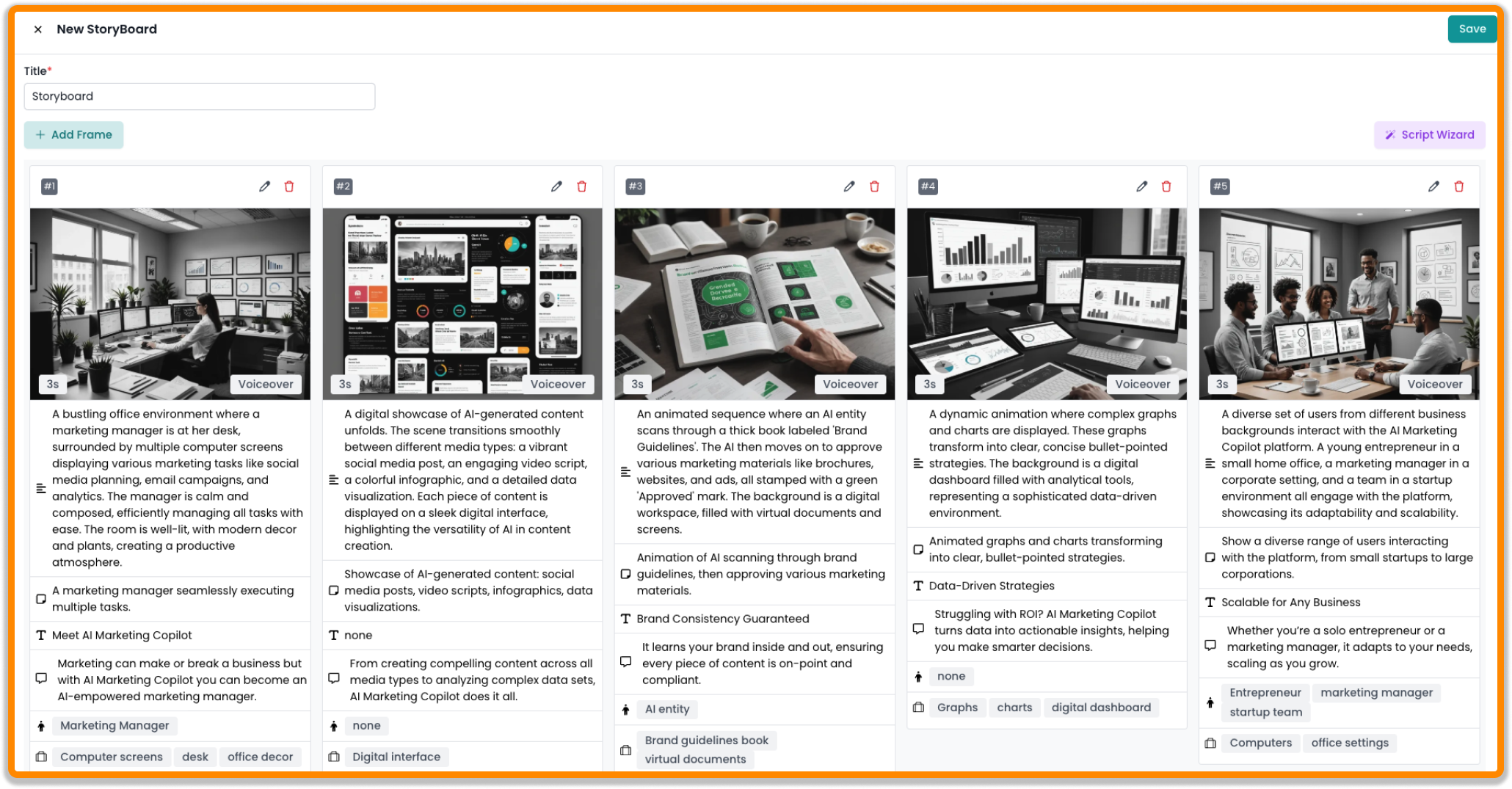
AI Marketing Content Generation
Enables creation of diverse content formats, from ads and emails to blogs and social media posts.
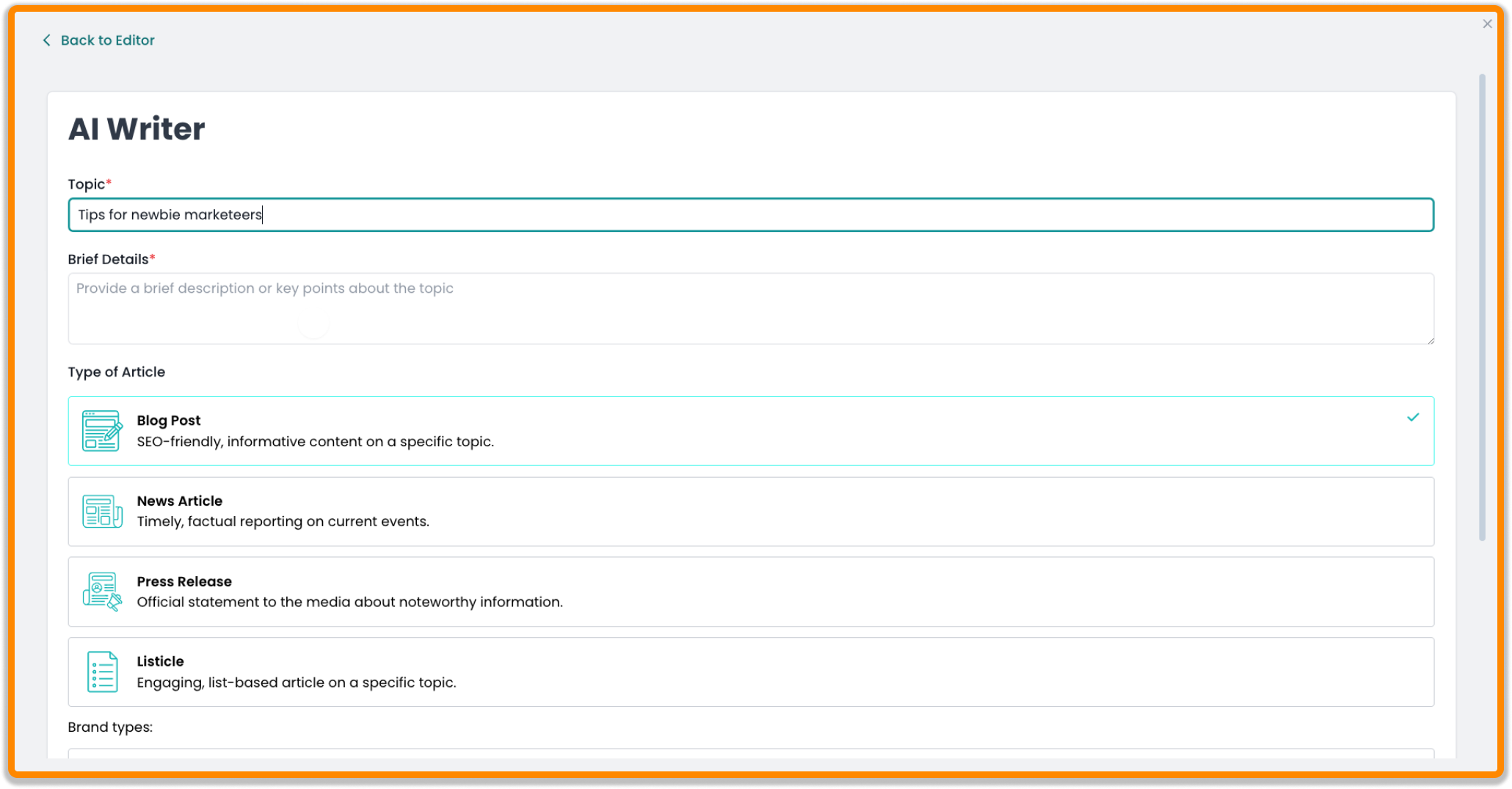
AI Voice Generation
Facilitates strategic planning and content optimization on the fly.
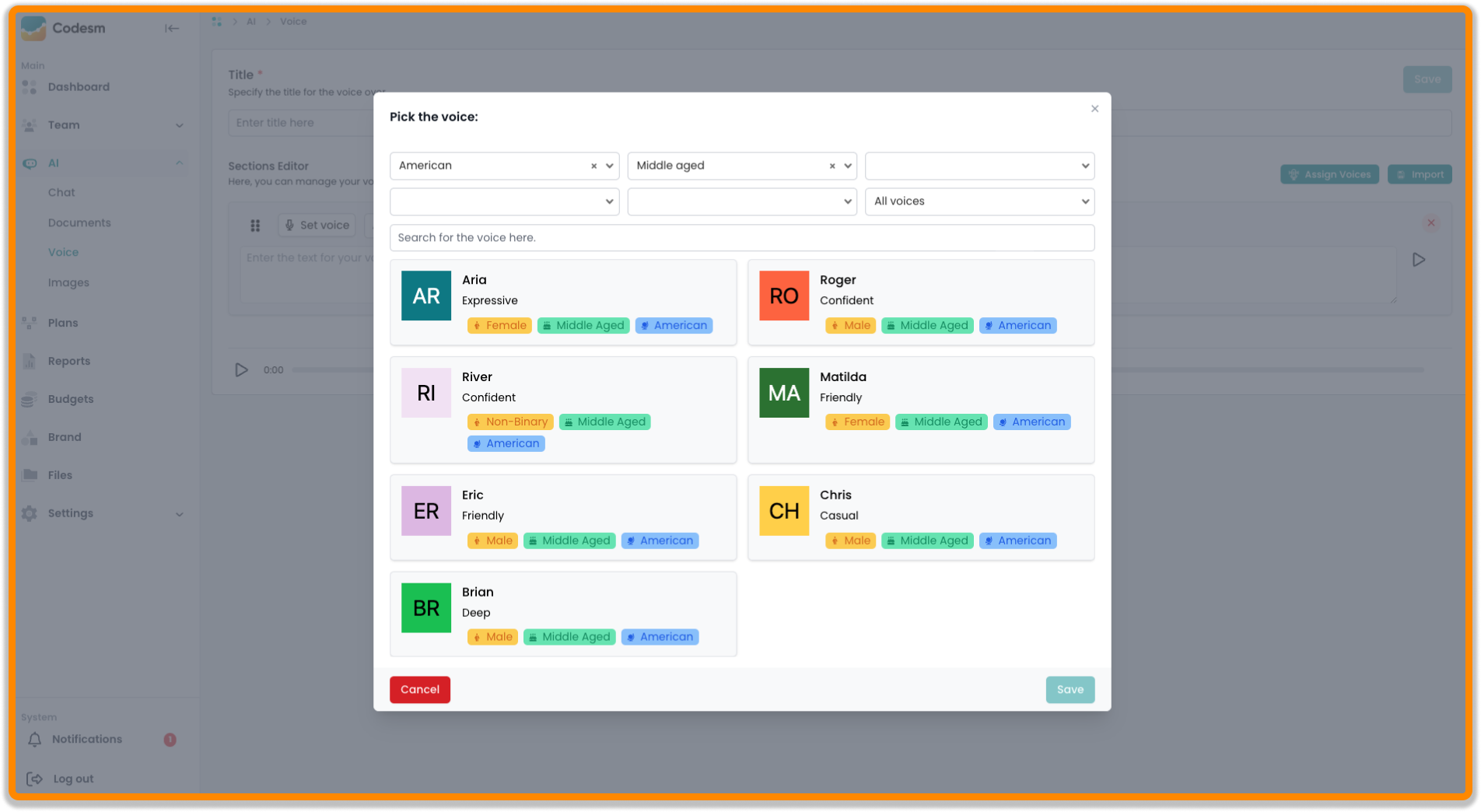
For businesses looking to experience the power of AI, get a demo now and be among the first to elevate your marketing with our AI-driven marketing solutions. As marketing continues to evolve in the AI era, tools like this are set to become indispensable for teams aiming to stay ahead in the competitive landscape of personalized, data-driven campaigns.
FAQs about AI in Marketing
As AI continues to reshape the marketing landscape, many professionals have questions about its implementation and impact. Here are some frequently asked questions to help you better understand AI in marketing:
What is AI marketing, and how does it work?
AI marketing involves using artificial intelligence and machine learning technologies to enhance marketing strategies. It works by analyzing data, automating workflows, and generating personalized content. AI algorithms process vast amounts of customer data to identify patterns and insights, which marketers can use to make informed decisions and create more effective campaigns.
How can AI improve my marketing strategies?
AI can significantly enhance your marketing strategies by providing advanced analytics for campaign performance, uncovering trends from large datasets, and enabling real-time optimization. It can automate repetitive tasks, freeing up time for creative work, and enable highly personalized content delivery across various channels.
What are the challenges of integrating AI into marketing?
The main challenges include ensuring data quality and quantity, addressing ethical concerns, and acquiring the necessary technical expertise. Organizations often struggle with integrating AI seamlessly into existing workflows and may face resistance from team members unfamiliar with the technology. At CODESM Marketing, we provide an end-to-end AI solution where your data is secure within our AI architecture while ensuring complete transparency.
How do I ensure data privacy and avoid AI bias in marketing campaigns?
To ensure data privacy and avoid AI bias, it’s crucial to establish clear ethical guidelines and maintain regular oversight of AI systems. At CODESM Marketing, AI models are regularly analyzed and evaluated for potential biases. With specific brand guidelines, the content and responses generated by our AI Copilot completely aligns with your brand.





